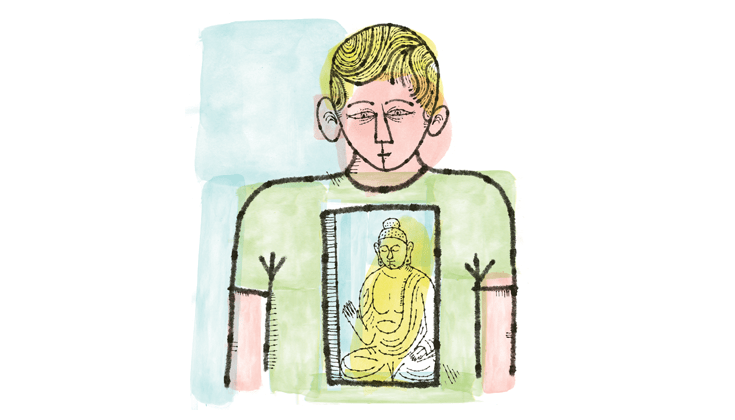Of course, anybody is free to draw on Buddhist principles and techniques they find helpful and to think of themselves as a Buddhist if they want. But it’s not a total free-for-all. Buddhists have lots of differing beliefs and practices, but there are a few shared principles that define them as Buddhists. These are the fundamental discoveries the Buddha made, and if you accept their truth, you’re a Buddhist.
Thich Nhat Hanh describes them this way: impermanence (everything is always changing), no self (nothing has a solid core or soul), and nirvana (peace is freedom from fixed concepts). In his great book What Makes You Not a Buddhist, Dzongsar Khyentse describes them as: All compounded things are impermanent, all emotions are pain, all things have no inherent existence, and nirvana is beyond concepts.
If you accept these principles, you can then make a formal commitment to Buddhism in a ceremony called “taking refuge.” Because nirvana means giving up ego’s futile search for refuge from impermanence and no self, the twist is that you’re taking refuge in not seeking a refuge. If you can do that, you’re really a Buddhist.

